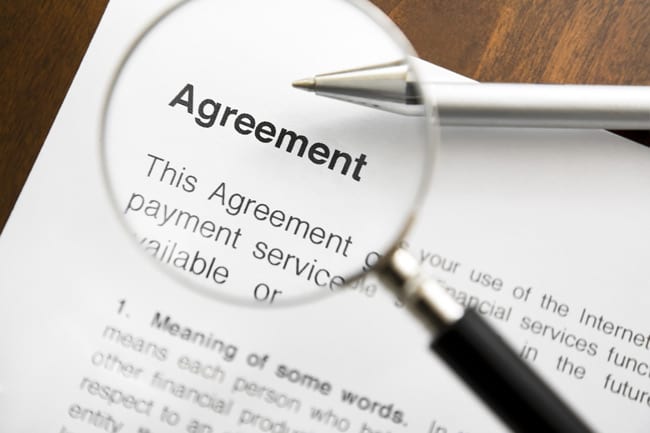If you always stop to read the fine print before signing anything, congratulations – your parents trained you well. If you don’t, beware: Your signature could commit you to a long-term gym membership you don’t really want, an apartment you can’t afford or worst of all, paying off someone else’s loan you cosigned.
Broadly defined, contracts are mutually binding agreements between two or more parties to do – or not do – something. It could be as simple as buying coffee (you pay $3 and the restaurant agrees to serve you a drinkable beverage), or as complex as signing a 30-year mortgage.
Once a contract is in force it generally cannot be altered unless all parties agree. And, with very few exceptions (e.g., if deception or fraud took place), contracts cannot easily be broken.
Before you enter a contractual agreement, try to anticipate everything that might possibly go wrong. For example:
- After you’ve leased an apartment you decide you can’t afford the rent or don’t like the neighborhood.
- Your roommate moves out, leaving you responsible for the rest of the lease.
- You finance a car you can’t afford, but when you try to sell, it’s worth less than your outstanding loan balance.
- You buy a car and only later notice that the sales agreement includes an extended warranty or other features you didn’t verbally authorize.
- You sign a payday loan without fully understanding the terms and end up owing many times the original loan amount.
- You buy something on sale and don’t notice the store’s “No returns on sale items” policy.
- You click “I agree” to a website’s privacy policy and later realize you’ve given permission to share your personal information.
- You buy a two-year cellphone plan, but after the grace period ends, discover that you have spotty reception and it will costs hundreds of dollars to buy your way out.
Cosigning a loan can be particularly risky. If the other person stops making payments, you’re responsible for the full amount, including late fees or collection costs. Not only will your credit rating suffer, but the creditor can use the same collection methods against you as against the primary borrower, including suing you or garnishing your wages.
Still, there may be times you want to cosign a loan to help out a relative or friend. The Federal Trade Commission’s handy guide, “Co-signing a Loan,” shows precautions to take before entering such agreements (www.consumer.ftc.gov).
A few additional reminders:
- Ensure that everything you were promised verbally appears in writing.
- Make sure all blank spaces are filled in or crossed out before signing any documents –including the tip line on restaurant and hotel bills.
- Don’t be afraid to ask to take a contract home for more careful analysis or to get a second opinion. A lawyer or financial advisor can help.
- Don’t be pressured into signing anything. If salespeople try that tactic, walk away. (Be particularly wary at timeshare rental meetings.)
- Keep copies of every document you sign. This will be especially important for contested rental deposits, damaged merchandise, insurance claims, extended warranties, etc.
- Take along a “wingman” if you’re making an important decision like renting an apartment or buying a car to help ask questions and protect your interests.
- Be wary of “free trial” offers. Read all terms and conditions and pay particular attention to pre-checked boxes in online offers.
Bottom line: Contracts protect both parties. Just make sure you fully understand all details before signing on the dotted line.


















